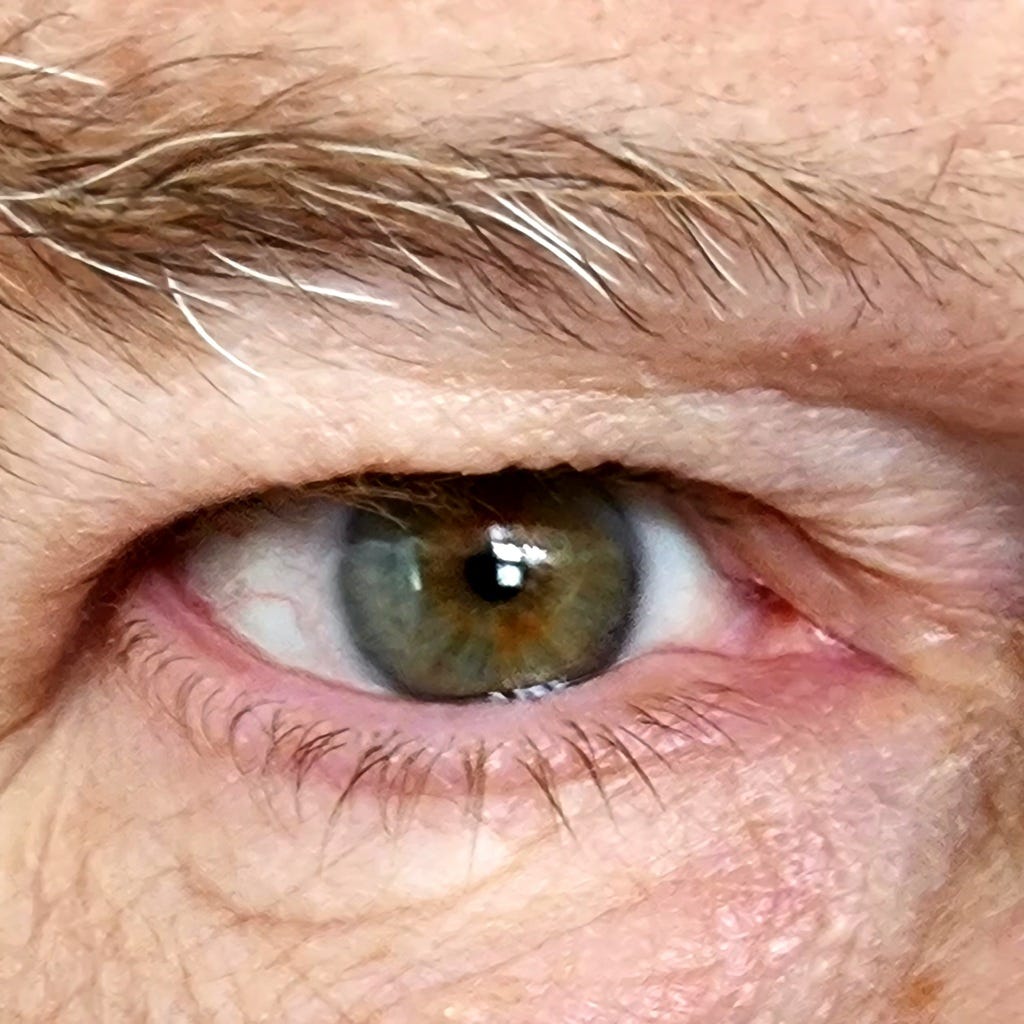Complex Regional Pain Syndrome (CRPS), also known as Reflex Sympathetic Dystrophy (RSD), is a chronic, debilitating nerve condition characterized by intense burning and stabbing pain. Often referred to as the ‘suicide disease’ due to the unbearable suffering it inflicts, CRPS can spread to new areas following injury or surgery, making any surgical procedure a significant risk. This article explores the challenging decision-making process faced by individuals with CRPS considering cataract surgery, weighing the potential benefits of improved vision against the risk of exacerbating their chronic pain.
Cataracts, the clouding of the eye’s natural lens, are a common age-related condition that can significantly impair vision. For individuals with CRPS, the prospect of cataract surgery raises concerns about the potential for the condition to worsen or spread. This article will delve into a personal journey of a couple navigating this complex situation, highlighting the precautions they took, the medical expertise they sought, and the eventual successful outcome. Learn about the specific drug protocols, the importance of finding the right surgeon, and the overall considerations for those with CRPS contemplating vision-saving eye surgery.
What is CRPS/RSD?
CRPS/RSD is a rare, disabling nerve disease affecting an estimated 200,000 people in the United States. Its history can be traced back to the Civil War era, with earlier reports dating to 16th-century France. The condition often arises after an injury to a limb or following surgery and is frequently compared to phantom limb pain.
In March 1996, Daniel, the husband of the author, sustained an injury to his left middle finger. His finger got crushed between a forklift and a concrete bucket. Over a year later, his finger was still oozing puss and was extremely painful. In May 1997, he was diagnosed with RSD (later renamed CRPS). By this time, the pain had spread up his finger, through his hand, and up his arm to the shoulder girdle.
Daniel tried multiple drugs, various injections, nerve blocks, and even an implanted spinal stimulator. Nothing helped. Ultimately, he gave up on all meds and treatment, taking only Advil for pain. At age 47, he was forced to take a disability retirement. For the next 24 years, he had no treatment for CRPS.
Cataract Diagnosis and the Decision to Seek Expert Advice
In 2021, Daniel received the news that he was a candidate for cataract surgery. The couple, deeply concerned about the potential for his CRPS to spread to his eyes, embarked on a quest for information and expert guidance. They found a lack of peer-reviewed studies specifically addressing CRPS and cataract surgery, prompting them to seek consultation at Cleveland Clinic.
To facilitate this visit, they navigated insurance hurdles, changing his insurance from an HMO to a PPO to gain approval for the consultation. On April 1, 2022, Daniel consulted with Dr. Jijun Xu at Cleveland Clinic. Dr. Xu’s recommendations included a specific drug protocol to be followed before surgery, consisting of Gabapentin, Vitamin C, and IV Ketamine during the surgery.
Dr. Xu also referred Daniel to Dr. Mark Chmiela, a local doctor in Las Vegas who had completed his residency at Cleveland Clinic. Daniel promptly consulted Dr. Chmiela, who initiated him on Gabapentin. This proactive approach, driven by the need to mitigate potential CRPS complications, highlights the importance of thorough planning and expert medical advice.
Finding a Surgeon Willing to Take on the Challenge
The next hurdle was finding a surgeon willing to perform the cataract surgery, given Daniel’s CRPS. The initial surgeon consulted declined but facilitated arrangements for surgery at UCLA. A second local surgeon also refused but recommended Dr. Kent Wellish in Las Vegas, who agreed to proceed with the surgery using Ketamine.
This experience underscores the challenges faced by patients with complex medical conditions in finding specialists willing to accommodate their needs. The willingness of Dr. Wellish to proceed with the surgery, incorporating specific precautions to address the CRPS, was crucial in enabling Daniel to move forward with the procedure.
The Cataract Surgery Experience and the Outcome
Daniel underwent cataract surgery on his right eye on September 6, 2022, followed by surgery on his left eye on September 13. Both procedures were completed without complications. He opted for advanced lenses, resulting in a significant improvement in his vision and a newfound vibrancy in his perception of color.
In January and February, he underwent secondary cataract surgery to address membrane cloudiness behind the lenses. These procedures were quick, painless, and performed in the office with numbing eye drops. The success of these procedures further enhanced his vision.
A Brilliant Ending and Lessons Learned
Aside from minimal pain on the night of each surgery, Daniel experienced no complications or CRPS-related issues. He now requires only reading glasses, a significant improvement from wearing eyeglasses since childhood. While he has a separate retina issue and experiences floaters, he is pleased with the overall outcome.
Daniel is now in the process of weaning off Gabapentin. His journey underscores the possibility of successful cataract surgery for individuals with CRPS, provided they find the right surgeon and adhere to appropriate medication protocols. The couple’s perseverance in seeking expert advice and finding a willing surgeon ultimately paid off.
Conclusion: Hope and Possibility for CRPS Patients Considering Cataract Surgery
This journey demonstrates that cataract surgery is possible for individuals with CRPS when approached with careful planning, expert medical guidance, and a proactive approach to pain management. The key takeaways include the importance of consulting with specialists familiar with CRPS, developing a comprehensive medication protocol, and finding a surgeon willing to accommodate the patient’s specific needs. If you or someone you know has CRPS and is considering cataract surgery, remember that a successful outcome is achievable with the right preparation and medical support. Contact https://rsds.org for more information.
If you have this horrible disease, our heart goes out to you.
